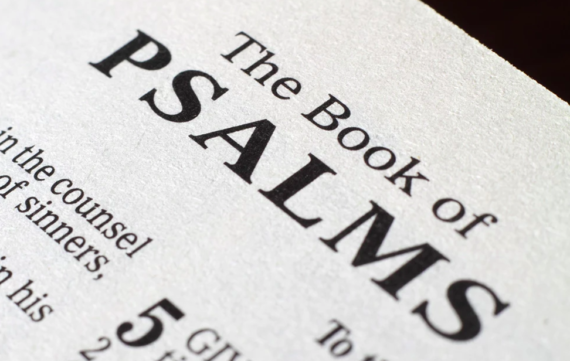Is this one psalm or two? It is hard to say for sure. Most Hebrew manuscripts make it two. But the Septuagint and many other ancient Bibles treat this as one psalm. Also, there is no heading on Psalm 10, unusual in this “book” of the Psalter. There is an acrostic pattern in the Hebrew which is carried on as if this were one psalm. Overall, there is a unity of theme, although the approach to the theme changes. So, it seems best to treat it as one psalm.
The theme or question with which the psalm is concerned is practical or functional atheism. Why is it that so many who act like God does not exist get away with it? Why do they often seem even to prosper?
In the first half (Ps 9) the writer seems confident that God will deal with this problem. At the beginning of the second half (Ps 10) his confidence is flagging. The question mark is bigger in 10:1-11, but the confidence returns in the end.






In a democratic nation, one response to the presence of evil is political activism. That was not commonly an option in the ancient world. Although we have options that they may not have had, and we should consider using them, we should also consider the response outlined here: In the face of functional atheism, we should trust and proclaim.
“And those who know your name put their trust in you, for you, O Lord, have not forsaken those who seek you. 11 Sing praises to the Lord, who sits enthroned in Zion! Tell among the peoples his deeds!” (9:10-11)
Trust
We should trust. This trust is founded on really knowing God. The evidence of our eyes will not do. Often, in this sinful world, the evidence at hand seems to favour the position of the functional atheist. Walking by the sight of our senses is not faith. When we really know and trust someone, we will do things for and with him that would appear madness to those who do not know him.
Although at a given moment justice may appear defeated and the path of the functional atheist may appear desirable, we have experiences with God that ought to teach us otherwise. Looking back, the psalmist sees that God has been faithful to him in the past. “For you have maintained my just cause; you have sat on the throne, giving righteous judgment” (9:4). The psalmist has personal experience of this. There are also national experiences of this in the past. Therefore he trusts, although currently events seem out of control.
Our trust is also founded on his promises. We know that God is faithful, but we do not know that he will give us each a pink Cadillac (or any other insane gift we might ask for). I do know, however, that he will work justice. That is his promise. It is his nature. “But the Lord sits enthroned forever; he has established his throne for justice, 8 and he judges the world with righteousness; he judges the peoples with uprightness” (7-9).
If we would walk by faith in a troubled world, we must know what he has promised and what he has not promised. Until God’s people start acting like they really believe in him, the unbeliever will never take notice. When we live as if we doubt his word, his promises, the wisdom of his commands, it is little wonder that we have trouble convincing others.
Proclaim
But it is not enough to believe, we should proclaim. “Sing praises to the Lord, who sits enthroned in Zion! Tell among the peoples his deeds! (11) Telling his deeds is the purpose for which we are saved! “Be gracious to me, O Lord! See my affliction from those who hate me, O you who lift me up from the gates of death, 14 that I may recount all your praises, that in the gates of the daughter of Zion I may rejoice in your salvation.” (9:13-14, emphasis added) This same purpose is stated throughout the Bible (cf Isa 43:21; Mt 5:6; Phil 1:10ff; 1 Peter 2:9; 4:10ff).
People often claim, “I teach by example.” But example alone will not be understood. Jesus did not just set a good example. He spoke so that people would understand why he lived (and died) as he did. Do we imagine that our example is better than his? There is so much functional atheism that people are picking it up by osmosis. Something must be said to get them to see what is happening. We must speak, not defensive words but words of proclamation.
“The Lord is king forever and ever; the nations perish from his land. 17 O Lord, you hear the desire of the afflicted; you will strengthen their heart; you will incline your ear 18 to do justice to the fatherless and the oppressed, so that man who is of the earth may strike terror no more.” (10:16-18)
There is so much functional atheism today — even in the church. Trusting and proclaiming is not all we ought to do about it. But these are the fundamental and first steps of our response.

